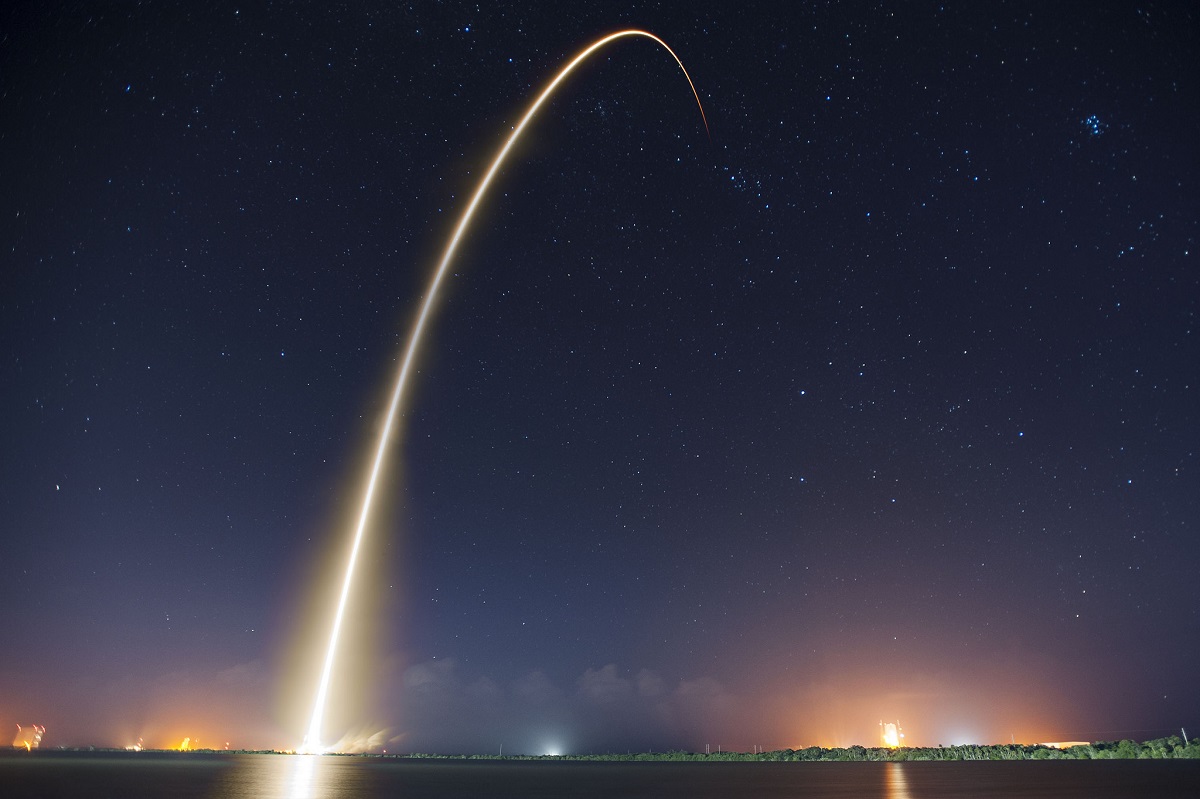The news was nearly overshadowed by Christmas, but Elon Musk’s SpaceX pulled off an incredible feat of technology this week:
The company’s Falcon 9 rocket blasted off from Cape Canaveral to carry a set of communications satellites into orbit. While the second stage of the rocket delivered its payload, the initial booster stage turned around and returned to earth, firing its engines to stabilize itself as it touched down for a soft landing. After two previous near-miss attempts that ended in crashes, this is SpaceX’s first successful test of this technology.
This isn’t the first rocket to successfully land itself – a rocket built by Jeff Bezos’ Blue Origin, a competing company, did that – but SpaceX’s craft flew higher, to orbital altitude rather than suborbital, and proved it could deliver cargo in the bargain. The difference in energy budgets is significant, as Musk pointed out in a slightly snarky congratulatory tweet to Bezos.
Until now, rocket boosters, like the Delta IV and Atlas V, have been designed to be disposable. After the launch, they fall back to Earth as junk. (The closest thing we had to a reusable rocket was the Space Shuttle’s boosters, which splash down into the ocean, requiring special ships to recover them and months of expensive repair and refurbishment.) Imagine what air travel would cost if they threw the plane away after every flight, and you get some idea of why space travel has been so expensive. The Falcon 9 rocket costs about $60 million to build, but the fuel is only $200,000 of that. If the same vehicle can blast into orbit and return multiple times, it would dramatically cut the cost of reaching orbit.
Musk hasn’t been shy about admitting that his long-term plan is to build vehicles that can carry people to Mars, with the goal of establishing human colonies on multiple planets. The energy and resources it would take would dwarf anything he or anyone else has planned so far, but he views it as a vital insurance policy against extinction-level disasters, and this achievement is the first step towards that vision.
Speaking for myself, I can’t help admiring Musk’s ambition, but the challenges of establishing a sustainable colony on another planet are enormous, and the question of how we’d get people there is the least of them. Just for scientific purposes, robot exploration is far safer and more cost-efficient. I’m not saying we’ll never travel to the stars – I hope we do! – but if we ever do, economic or scientific motives won’t have anything to do with it. It would be glorious to see the human species spread out across the solar system and beyond, but there are so many more urgent problems down here on Earth that we should confront and solve first. I’ll still cheer when human beings pull off a feat of technology like this, but as I’ve said in the past, I think we’d better learn to live together peacefully down here before we start turning our eyes to the heavens.
Image credit: SpaceX/Flickr, released into public domain
